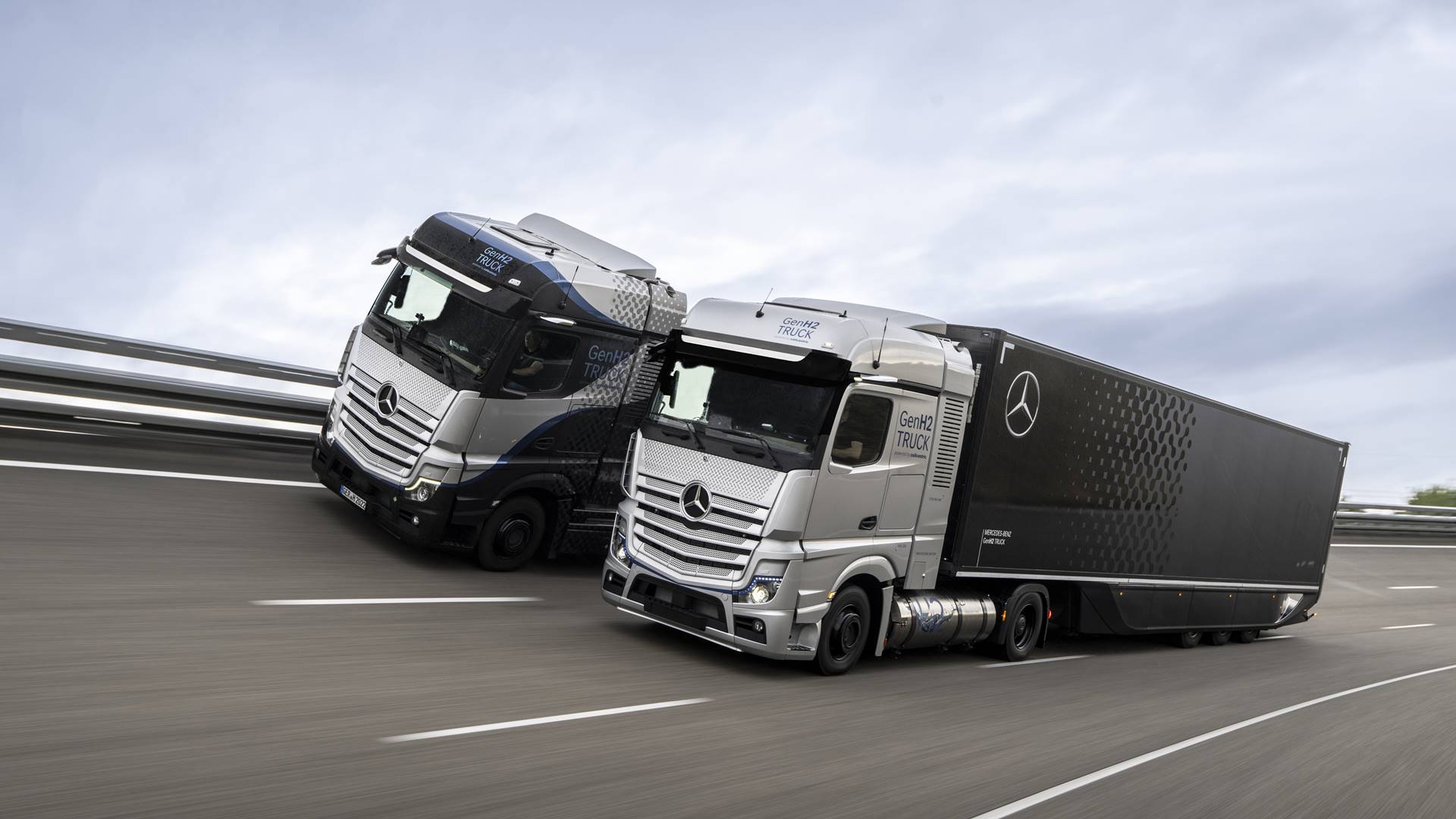Daimler Truck is testing liquid hydrogen tanks
In the long term, Daimler Truck‘s commitment is to electric trucks, both battery, and hydrogen fuel cells. For this last purpose, it has a travel companion, Volvo Trucks, jointly developing the entire system. Volvo told us that its hydrogen trucks will be able to travel 1,000 kilometers, now we can go into more detail.
Under standard conditions (25ºC and ambient pressure), hydrogen is a very low-density gas, so it must be compressed to store in tanks. Daimler Truck has gone one step further, and already has a prototype that runs on liquefied hydrogen tanks. It is not trivial to turn hydrogen into a liquid, you have to cool it down to negative 253 degrees (-253 ºC), but there is an obvious advantage: it fits more.
The Actros truck prototype (GenH2) has two tanks with a capacity of 40 kg of hydrogen, which can store enough energy for the fuel cells to travel 1,000 kilometers or more. The manufacturer ensures that its level of insulation allows it to maintain the cryogenic temperature for a “long enough” time without extra cooling.
To refuel liquid hydrogen (LH2) a specialized infrastructure is needed, of which we know nothing about its energy consumption, which will have it for sure. The first dispenser has been installed in Wörth (Germany) in collaboration with Air Liquide. The tanks can be filled in 15 minutes, competitive concerning filling diesel tanks, considering the liters that fit.
One of the key points of long-range tanks is that they will condition truckers less at the infrastructure level, in the same way, that diesel trucks with large tanks allow truckers to refuel in the country they are most interested in due to diesel prices for reducing freight costs. With 1,000 km or more of autonomy, the LH2 infrastructure does not have to be highly concentrated, just well distributed on main long-distance routes.

But Daimler Truck is also going to test the sLH2 technology, which increases the volumetric density – more kilos fit in the same volume – and refueling is easier. For this, it will have the collaboration of Linde (they have been working together since 2020) and will be tested in a specific refueling facility next year. The sLH2 technology also works at a lower temperature but a higher pressure than LH2.
The advances made will be useful to other truck manufacturers, as their interest in deploying this technology is common. What’s more, manufacturers are teaming up with energy companies to shape the necessary hydrogen infrastructure for heavy transport. This does not mean that electric trucks, including long-distance trucks, will be commercially available sooner.
For example, the H2Accelerate (H2A) interest group is made up of Daimler Truck, IVECO, Linde, OMV, Shell, TotalEnergies, and Volvo Group (parent of the truck subsidiary). However, this question must always be asked: is hydrogen competitive with batteries? Of course, in terms of local public transport buses, it seems not. In Montpellier they were discarded due to their high costs and this has also been highlighted by David Cebon, professor of mechanical engineering at the University of Cambridge.
Over long distances, in heavy goods transport, it seems that it is not so clear. Long-distance electric trucks with batteries have a greater dependence on the infrastructure of ultra-fast chargers (better than 1 MW and above), while hydrogen trucks would be able to travel 500 km and return without more pumps or special infrastructure. Hence they have not been discarded yet.
The post Daimler Truck is testing liquid hydrogen tanks appeared first on Latest Car News.
Latest Car News
Comments
Post a Comment